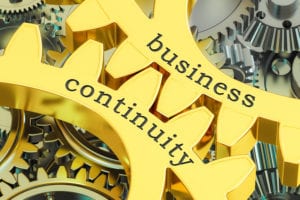Carillion’s demise at the beginning of 2018 had an impact that stretched beyond the thousands of staff unsure of their employment future and the tens of thousands of businesses that found themselves out of pocket.
The collapse of such a major player in the government contracts arena has at last stimulated change in the way the government is guiding the public sector in how it looks to interact with its private sector partners. New government plans will require outsourcing firms, who wish to work with the public sector, to evidence:
1. Greater transparency
2. A commitment that outsourcing will be a ‘force for good’
3. The creation of ‘living wills’ to facilitate contingency planning.
The reasoning behind this move was explained by Cabinet Office Minister, David Lidington, in a speech he is reported to have made at the Business Services Association: “By ensuring contingency plans can be quickly put in place in the very rare event of supplier failure, we will be better prepared to maintain continuity of critical public services.”
The implication from this, and the rest of his speech, is that Carillion had caught them off guard. The ‘too big to fail’ theory went out the window and the government, who had to pick up the pieces afterwards, found that they were less prepared than they had realised to seamlessly takeover or transition Carillion responsibilities to other providers.
The scale of the problem was substantial because of the size of the organisation and the complexity of its business. Without a clear and current succession plan in place, the process of ensuring that the needs of all end users, clients and stakeholders were covered, took far longer than it should have done.
‘Living Wills’ from Outsourcing Firms – Cabinet Office Plan of Action
As a result, the Cabinet Office started working on a plan to ensure that should such a thing happen again, rare though it may be, they’d be better prepared for it. The package is reported to have already been adopted by Capita, Sopra Steria and Serco. Others will no doubt follow suit if they want to continue having access to government contracts.
News of this was reported in November 2018, but the thing that brings it back to the fore now is the ongoing media scrutiny of Interserve. A November article in the Financial Times said that the company was being “closely watched by the Cabinet Office because of concerns over its fragile financial health”. Then, just days ago, the FT questioned whether Interserve was in “fresh rescue talks with creditors”, going on to say, “A new rescue package for Interserve has gained added urgency as clients start to retreat from awarding fresh contracts, and jittery suppliers and workers demand payment upfront.” So, in the media at least, the profile of supplier financial stability is being much more closely examined.
What is a ‘Living Will’ in the Context of Supplier Sustainability?
This is a document more commonly drawn up by individuals rather than organisations. A ‘living will’ for an individual is a document that sets out your wishes for the treatment of your future and often includes those of your dependents. This can include long-term medical care and financial obligations and investments, should you no longer be able to make those decisions for yourself.
When applied to an organisation, a living will usually includes detailed contingency plans that would identify material aspects of running the contract – this should be updated at a minimal interval of every six months to ensure that the services from your supplier remain aligned to your changing objectives and outcomes. In this way, whether you have a natural or unnatural and early end to your contract, another provider could take over seamlessly to ensure that your service users are not unduly inconvenienced.
According to PublicFinance.co.uk ‘Capita, Serco, Sopra Steria, Engie and Interserve have volunteered to complete ‘living wills’. It went on to say: “The wills are part of a range of packages the Cabinet Office says will ‘revolutionise government procurement’.”
It seems that the larger outsourcing firms are getting on board with the living wills idea, with Jon Lewis, chief executive of Capita, saying “Adopting ‘living wills’ underlines our values-based leadership and our determination to help protect the UK’s public services”, and Rupert Soames, chief executive of Serco, stating “We are now beginning to see progress being made in a number of areas – transparency, standards of behaviour, risk allocation, and ‘living wills’, which are designed to improve resilience of government contracting.”
Living Wills, Contracts and Contingency Planning
Often, the contract you have with your main contractor, in the event it ceases to trade, is likely to (or should) have appropriate provisions within it to allow subcontractors to be immediately assigned to service users, at the same cost or lower. However, better structured contracts will also allow you the same rights if the main contractor cannot reasonably evidence financial sustainability or sustainable agreed lines of credit to its own supply base.
It should also require the main contractor to assure its own supply base have appropriate financial cover. A ‘test structure’ for this should be pre-agreed with the supplier in the contract during the initial procurement process and/or during any ongoing contract reshaping process, where it has not already been agreed at the outset. This will avoid any dispute later in the relationship if you need to take urgent action to protect your service supply.
Three Signs You May Need to Enact the Living Will Portion of Your Contract
We recently wrote an article titled Carillion Collapse; 8 Tips to Protect Your Company’s Interests. This looked to offer some guidance to anyone who may find themselves contracted to an outsourcing firm that finds itself in financial difficulty. The eighth and final tip was to have an independent disaster recovery process in place. This included having a back-up supplier waiting in the wings with the up-to-date project knowledge (as identified earlier) and the industry expertise to take up the reins as and when they are needed. It is these types of fallback situations that the ‘living will’ is supposed to allow for.
So if your contractor has living will provisions in your contract, when should you consider enacting them?
1. When you see warning signs of key financial strains
The warning signs we’re talking about can be divided into two camps – those that will be obvious to clients who remain vigilant and aware, and those that are a little subtler and would require a special relationship to gain insights into.
• Key supplier staff and subcontractor resources leaving en masse
• Lack of investment in new products and services
• Payment delays to subcontractors
• Reduction in the supplier’s commitment to innovate
• Reduction in key staff members assigned to your relationship.
The special relationship we talk of is possible if you have a team of multidisciplinary individuals on your project tasked with building closer, stronger relationships with their contractor counterparts. I speak of course about your Intelligent Client Function (ICF) team which functions not only as a useful guiding force in the relationship, but also as an early warning system for identifying, and potentially steering everyone away from project threatening situations seen on the horizon.
2. Worryingly high numbers of subcontractor disputes
As you’ll know, there will always be tensions and even the potential for disputes on a major and/or complex project, but when you notice that they are coming thick and fast, you may be minded to ask why. If your contractor finds themselves in dispute with multiple subcontractors at the same time, logically, there are two likely causes and it is highly advisable to investigate which is the case with your contractor:
a. They chose to work with the wrong subcontractors. It does sometimes happen that contractors who themselves have a procurement due diligence process that is lacking, may find themselves in relationships with subcontractors that are more stressful than they should be due to their lack of commitment or ability to meet expectations, standards and/or targets. The knock-on effect of this is that it will have a direct impact on the schedule, the quality of outcome, and/or the ability your contractor has to meet your expectations.
b. They could be looking for ways to avoid or delay payment. This can be the worst-case scenario. It would mean your contractor is likely in financial difficulty. It is an age-old strategy that unfortunately some still employ, should they have cash flow issues, to find excuses for delaying or avoiding payments to subcontractors. This could mean anything from instructing their own people to slow down the verification process that will determine when certain milestones are achieved, all the way up to manufacturing issues that simply do not exist.
3. Regulatory fines
Any regulatory fines are a reason for concern. If either your main contractor or any of its subcontractors receive several in the term of a project, this should put red flags on your radar. The reasons behind this turn of events can be many and varied, but in these circumstances, you would certainly be justified in asking the right questions of your supplier to gain assurances that your contractor is still capable of delivering on all of their commitments to you.
Conclusion
A living will for private sector organisations that offer their services to public sector clients is one of the key points we usually advise clients to make part of their procurement strategy and/or their ‘reshaping’ process. Structured in the right way and with the right evidence, it provides the assurance that if your supplier does get into serious financial difficulty, it will give the service user the contractual foundations to ‘step in’ quickly to assure continuity of service supply.
The question that we’ve looked to address in this article is not only why you might want the security of a living will, but how you will know when it will be appropriate to engage it.
If you already have a skilled ICF team in place, they will be ‘plugged into’ the project grapevine which should provide them with the appropriate insight into what really is going on behind the scenes with your supplier/contractor. Moving away from a contractor is a significant undertaking at the best of times, so if you are going to enact a living will, you must have absolute confidence that the strategy for stepping in, exit and transition is assured.
Photo Credit-iStock, AlexLMX



